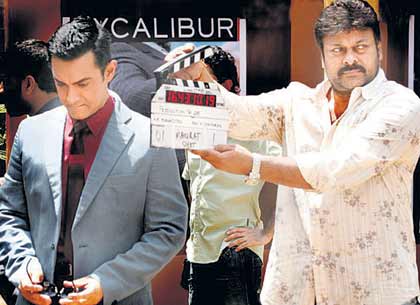This is the 31st installment of my weekly column for Mint, Thinking it Through.
Not a week goes by these days without someone bashing blogs. Last Thursday, the essayist Mukul Kesavan referred disparagingly to how the “masters of blah have migrated to the Republic of Blog”. Just days before that, Robert McCrum wrote in the Observer of how “the democracy of the Web is in danger of becoming a cacophonous nightmare”. The Times of India famously (and ironically?) wrote last year that “no one can beat Indian bloggers when it comes to self-obsessed preaching, gossiping and bitching”.
I write a fairly widely read blog, India Uncut, so let me jump to the defence of blogging. Firstly, all these gentlemen are right—but they nevertheless miss the point, as Theodore Sturgeon could have told them. When Sturgeon, a writer of science fiction, was attacked for the rubbish that came out of that genre, he famously came up with what is known today as Sturgeon’s Revelation: “90% of everything is crud.”
Sturgeon’s point was that most attacks against science fiction used “the worst examples of the field for ammunition”. And while he accepted that 90% of science fiction was rubbish, so was 90% of everything else. If one just looked at the crud component of any field, it would be easy to dismiss anything.
This problem is amplified in blogging’s case. In journalism, for example, there are filters to publishing. Newspapers and magazines have editors who constrain what goes into print, and the limitations of space ensure that a lot of crud gets filtered out.
Blogging, on the other hand, puts the tools of publishing into every individual’s hands. This is tremendously empowering, but it also means that the proportion of crud that gets published is bound to be far higher than in traditional journalism. To judge blogging by the crud is, thus, meaningless.
What about the non-crud? Well, there are so many kinds of non-crud that it’s hard to generalize about them. People blog for different reasons: to filter for interesting content on the Web; to keep an online diary; to keep their friends updated on what they do; to provide different kinds of utilities; to be read by niche audiences they cannot otherwise reach; to push causes they believe in; to comment on what’s going on in the world; and even to act as a watchdog on the supposed watchdogs, big media.
Every reader is likely to find a quality blog that caters to him or her, while journalism, especially in India, increasingly caters to the lowest common denominator. Also, journalists tend to be generalists, and their coverage of specialized subjects is often shallow. In contrast, specialists on every subject blog about their passions, delving into areas and nuances ignored by mainstream media. Economics blogs such as Marginal Revolution and Café Hayek, and the law blog, The Volokh Conspiracy, are excellent examples of this.
Blogging as a medium provides many advantages that journalists and media outlets would do well to consider. One, blogging has immediacy: Reporters are not dependent on the news cycle to get their work out, and can publish it as soon as they write it. Two, blogging provides them flexibility of space. They can blog a single thought in a handful of words without needing to expand it into a publishable piece, or a 6,000-word essay that their newspaper may not have space for.
Three, a blog adds dimensions to a piece, as one can hyperlink within it to other sources of knowledge and argument that enrich the reader’s experience. Four, blogging allows a personal tone that the dictates of a house style in a publication may not. Five, blogging opens you up to a feedback mechanism that newspapers do not provide. I am not just referring to comments, which some high-traffic bloggers avoid because the noise-to-signal ratio gets out of hand, but to the fact that the blogosphere is essentially meritocratic, and rewards excellence and punishes mediocrity virtually in real time.
If bloggers do not provide value to their readers consistently, if they do not respect their readers’ time and write crisply and lucidly, if they treat their blogging as a chore to be dispensed with, they will not be read. The impact on their traffic will be immediate and visible. In newspapers, on the other hand, such real-time feedback from readers hardly exists. For example, if most Mint readers were of the opinion that my weekly column is a waste of space, it would take a lot of time for that opinion to filter in to the editors, if at all. But if it was a blog, there would be no place to hide. The loss in readership would punish me immediately and visibly.
Ouch, I’m out of space. Damn these newspaper columns! I’m off to blog now—would you like to come along?
* * *
You can browse through all my columns for Mint in my Thinking it Through archives. I’ve written on this subject before in the following pieces: Blogs—The New Journalism.” “Generalising About Bloggers.” “Don’t Think in Categories.”

